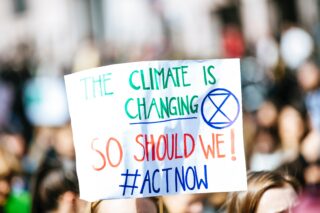On April 22, International Earth Day is celebrated. On this day there are many actions… Their purpose is to raise general awareness of the need to protect the environment. The hashtag #earthday is increasingly common on Twitter… But do users know what needs to be done to save our planet.
The European Environmental Bureau (EEB) told Euronews about Europe’s “green” priorities.
Fighting air pollution
The EEB claims that more than 400,000 Europeans die prematurely each year because of air-pollution problems.
More than 90% of the inhabitants of European cities breathe air with pollution levels above the thresholds recommended by the WHO (World Health Organization).
The damage from “bad air,” according to the EEB, is 940 billion euros a year. Of these, 15 billion euros go to pay for bulletins and 4 billion euros to treat diseases related to air pollution.
Says EEB spokesman Sebastian Pant:
“The situation has improved since the 1970s, but we are nowhere near the WHO recommendations. This goal, alas, we will not reach even by 2030. We can see that cities understand the need for action. But at the national level, the authorities are slow, and this creates problems.
2: Fighting Climate Change and Energy Security
At the end of the year the European Environmental Bureau plans to convene a conference which should result in an agreement on reducing greenhouse gas emissions.
“We don’t think the European Union is doing enough. It can improve the energy security situation by reducing dependence on Russia and increasing energy efficiency. The best way to fight climate change is to fight energy consumption,” notes Sebastian Pant.
Avoiding environmentally damaging investments and trade agreements.
This is mainly a question of creating the largest free trade zone in the world between the U.S. and the EU. The Transatlantic Trade and Investment Partnership (TTIP) agreement could be signed very soon. Critics fear that U.S. corporations will be able to circumvent strict European standards.
- Creating a Closed Loop Economy and Better Resource Management
A circular economy is an economy based on the renewal of resources, with multiple uses of products. With this economy, resources are used more efficiently, reducing waste.
A successful transition to a circular economy could save Europe €72 billion, reduce carbon emissions and create 400,000 jobs.
Sebastian Pant of the EEB said, “This is all very important for Europe. We have to manage our resources better. If we can create a system, for example, where products have optimal design, we can reduce waste.”
“We believe we will get there. There’s not a lot of doubt. And there’s not a lot of people who oppose it.”
“The question is how quickly it will happen. The European Commission makes proposals and then withdraws them, promising to come up with something more thorough.”
- Preserving and protecting biodiversity and ecosystems
EEB experts warn:
unsustainable farming, overexploitation of fisheries resources and pollution are having an extremely negative impact on Europe’s biodiversity and ecosystems.
Slightly more than half of Europe’s water bodies are expected to meet the norm in the coming year. Meanwhile, the EEB adds that the state of regional European seas is poor and the biodiversity of marine organisms is increasingly challenged.
Meanwhile, the normal functioning of ecosystems is all about flood protection, clean water and disease control.


